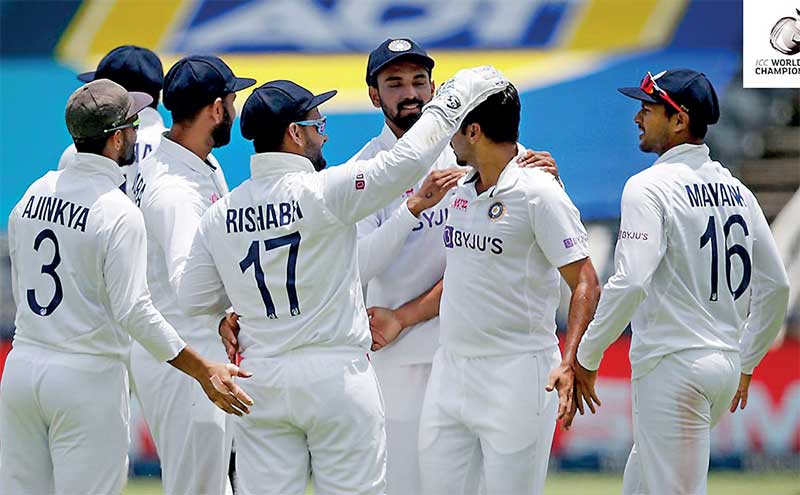Friday Feb 20, 2026
Friday Feb 20, 2026
Wednesday, 26 January 2022 01:08 - - {{hitsCtrl.values.hits}}

NEW DELHI (AFP): India’s cricket pundits on Monday called for changes in the team after South Africa’s one-day series whitewash following Virat Kohli’s exit as skipper.
India lost their third and final ODI by four runs in Cape Town to end a disappointing tour that also saw the tourists lose the Test series 2-1.
Quinton de Kock’s 124 set up a tense win in the final 50-over match, which followed two emphatic victories for the hosts.
“Huge for South Africa. Huge. And very well played. Proper post-mortem for India now,” commentator Harsha Bhogle wrote on Twitter.
KL Rahul captained the ODI side in the absence of white-ball leader Rohit Sharma, who missed out due to injury.
Kohli, who quit as Test skipper after the South Africa series loss, was the top scorer with 65.
Deepak Chahar, a pace bowler who bats in the middle order, hit a gritty 54 in India’s chase of 288 but got out with the team needing 10 runs to win, and the remaining two batters soon departed.
“What’s lacking about this particular Indian outfit is the batters that they have in the team, none of them chip in with three-four overs of bowling,” former India batter Sanjay Manjrekar told ESPNcricinfo.
“That’s got to be the quest for India with their 50-overs team. If they can’t find an obvious sixth bowling option...you have got (to have) pure batters who walk into the team and can chip in with some bowling.” Former captain Sunil Gavaskar had backed Chahar’s inclusion in the XI after the first two losses, saying veteran fast bowler Bhuvneshwar Kumar, who went wicketless in two matches and gave away too many runs, has lost his sting.
Gavaskar had also told TV channel India Today that captain Rahul “had run out of ideas” during opposition partnerships in the first two ODIs.
But cricketer-turned-commentator Aakash Chopra said the losses could help the team reinvent itself.
“Losing... allows you to take bold decisions,” he said.
“India’s white-ball cricket template needs a makeover... this could very well be the beginning of the new approach.”